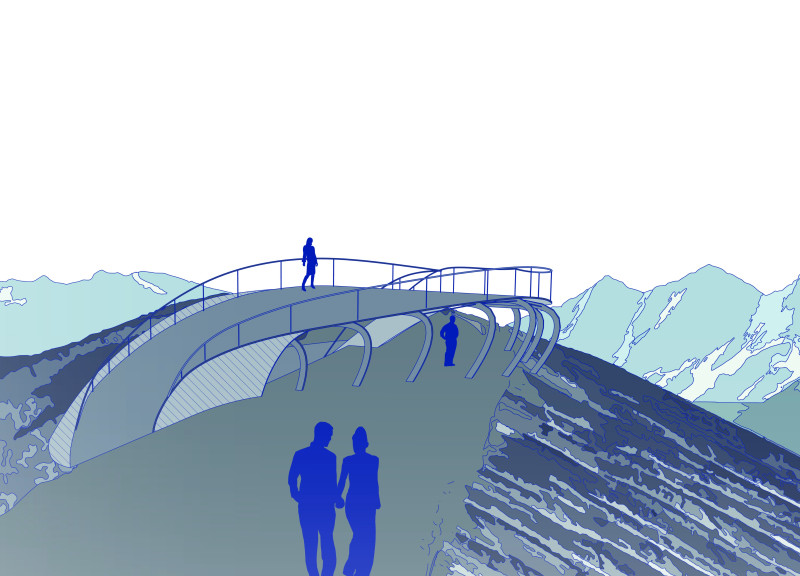5 key facts about this project
The Hverfjall lookout point is set against the impressive backdrop of the Hverfjall volcano in Iceland, transforming how visitors engage with the striking environment. It serves as an observatory for people to connect with the stunning scenery while navigating the rugged landscape. The design highlights a strong relationship with the surrounding terrain, encouraging an interactive experience for those who come to explore.
Concept and Integration
The design embeds the lookout point into the hillside to blend with the natural features of the site. This integration respects the existing topography and allows for a pathway that welcomes visitors. By providing various viewpoints, the lookout enhances the experience of the unique volcanic landscape. Users can wander and discover new perspectives on the scenery, fostering a deeper connection to their surroundings.
Accessibility and Structure
The structure is designed for access from multiple directions, ensuring that all visitors can move freely and safely. This commitment to accessibility promotes inclusivity and encourages engagement with the landscape. The relationship between the built structure and the hillside remains intact, making it feel like a part of the natural setting.
Construction Techniques
The construction approach considers limited road access to the site, addressing practical challenges head-on. Boulder-connected wood fins form the backbone of the structure, making assembly straightforward and manageable. Reinforcing the lookout point is a system of metal rods that provides essential stability, ensuring the integrity of the structure in this dynamic environment.
Materiality and Sustainability
The outer form of the lookout point uses recycled wooden planks, reflecting an awareness of sustainability within the design. This environmentally friendly choice deepens the connection between the structure and the site. The design is completed with stairs and railings that guide visitors safely to the observation area, combining functionality with the overall vision of creating a space that complements the stunning landscape.




















































